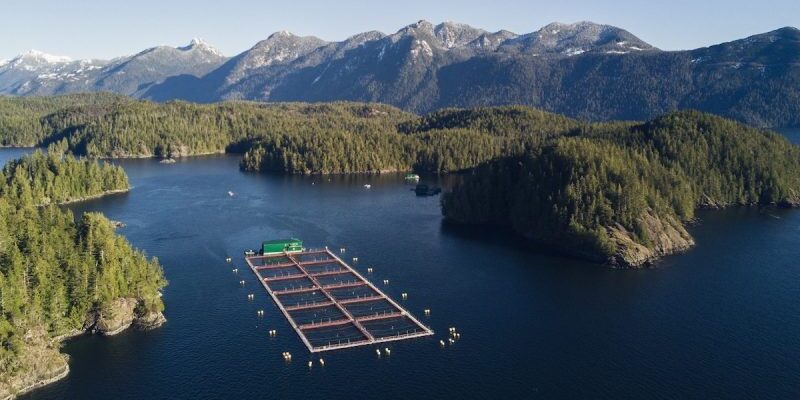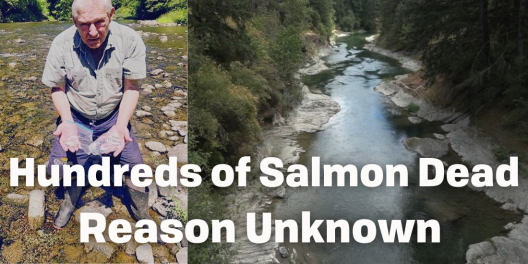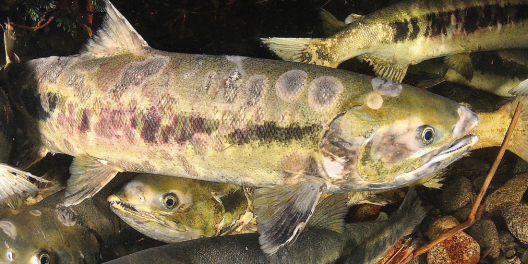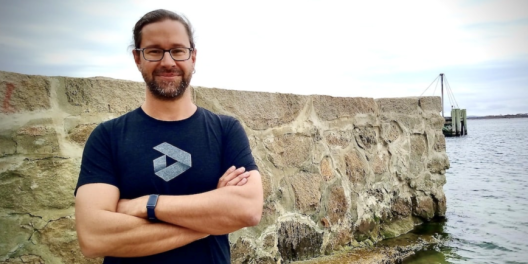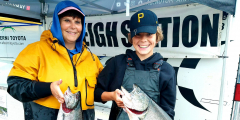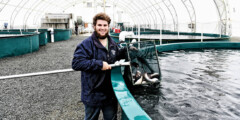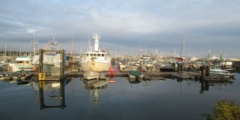Calls are getting louder demanding the federal government fast track plans to end open-net Atlantic salmon factories on the BC Coast.
This comes after it was revealed that Fisheries and Oceans Canada (DFO) kept the public and First Nations in the dark over a bacterial mouth rot disease infesting BC’s Atlantic salmon farms that could infect migrating wild Fraser River sockeye.
Last fall, DFO managers briefed the salmon farming industry about the dangers of mouth rot bacterium. Still, they didn’t tell the public or First Nations engaged in consultations about the future of factory fish farms.
“The fact that they knowingly withheld this information from First Nations consultations is absolutely appalling,” said Bob Chamberlin, chair of the First Nations Wild Salmon Alliance and a member of the Kwikwasutinuxw Haxwa’mis First Nation, in a story published May 13, 2021, in The Narwhal.
A federal access to information request obtained by the non-profit group Watershed Watch Salmon Society contained details about the mouth-rotting bacterium, Tenacibaculum maritimum. It is found in high concentrations around active Discovery Islands salmon factories on the east coast of Vancouver Island. It causes lesions on the upper and lower jaws making it difficult for fish to eat. According to DFO, mortality rates can reach 30 percent, but multiple treatments with antibiotics can be successful.
Chamberlin said DFO knew about this disease’s potential risks to wild salmon at the end of September. From October to December, First Nations were involved in consultations with the federal government, leading to the plan to phase out Atlantic salmon factory farms in the Discovery Islands by June 2022.
“And they never said a word,” said Chamberlin, who took part in the consultations.
“What’s coming out now about the department’s behaviour in DFO Pacific should be of concern to all British Columbians and Canadians at large. This is a federal department meaningfully and intentionally undermining consultation with First Nations.”
Stan Proboszcz, science and campaign advisor for the Watershed Watch Salmon Society, said that the combined risks of parasites, sea lice and now mouth rot disease should convince Ottawa to follow through on its commitment to end open-net pen salmon farming in B.C.
“It’s like this perfect storm of pathogens emanating from these farms and impacting B.C.’s wild salmon,” Proboszcz told the Narwhal.

